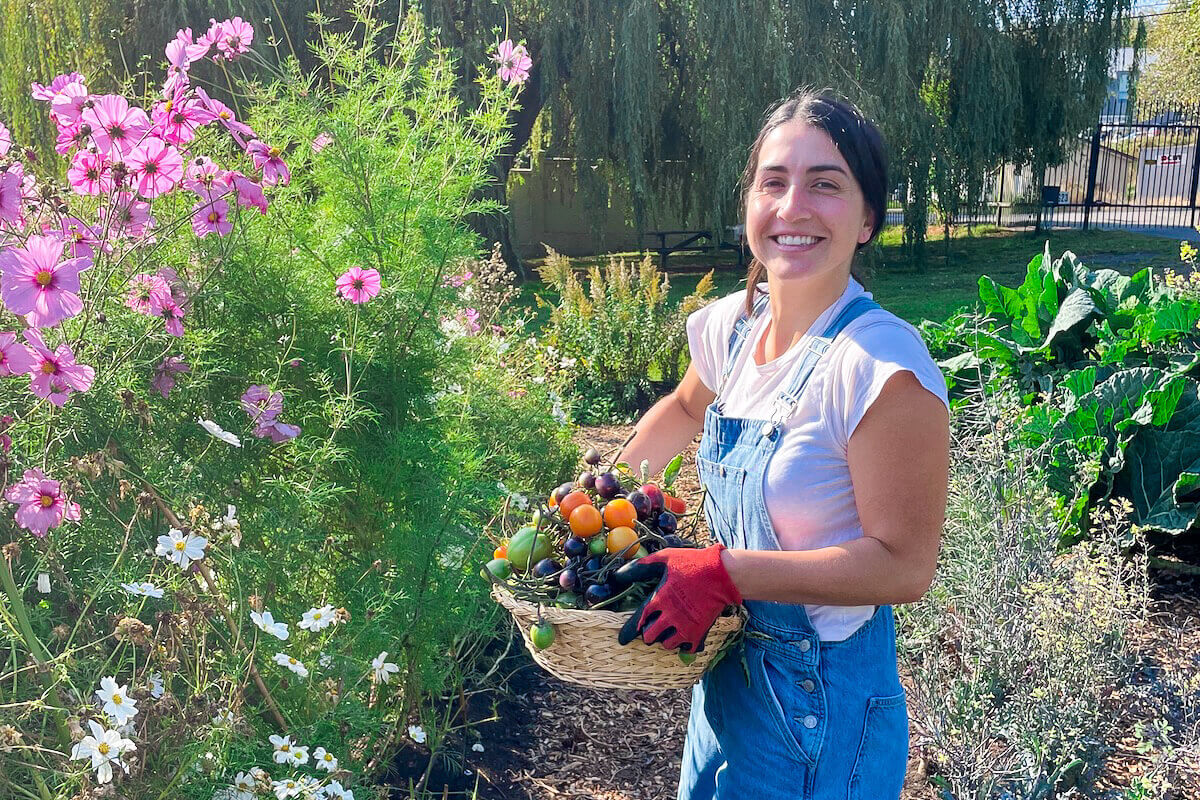
Emily Mulroney comes from an average Canadian, close-knit family with strong family values. She was a well-rounded student and competitive athlete in high school. Like many in her shoes, she enrolled in university expecting the ‘typical’ outcome; that she would learn what she’s passionate about, then build a career out of it.
But, the path to achieving life goals for Emily took a major turn when, in 2010, during her first year of university, she contracted Lyme disease from a tick bite.
Faced with struggles of a ‘hidden’ disease
How much damage can a bug bite do?
Those familiar with Lyme will know of its terrible dangers: extreme aches and pains, tendonitis, fatigue, brain fog, memory loss, fainting, seizures, food intolerances, vomiting, sensory overload, blurred vision, impaired speech, tinnitus, depression, anxiety. . . the list goes on.
And, the worst thing about it is that the symptoms develop gradually, so it’s hard to diagnose.
“My neurological symptoms were the scariest. I would hear phantom sounds and sensations. . .[I also] experienced PTSD from the pain and symptoms and would even get lost in familiar neighborhoods,” explains Emily.
Before things got really bad, Emily continued her studies at Queen’s University in Kingston, Ontario.
Finding her passion in socially-aware entrepreneurship
In the summers of 2011 and 2012 Emily ran a Student Works Painting franchise. It was her first chance to experience the joy and responsibility that comes with entrepreneurship.
“Running a business gave me an opportunity to infuse my values into the way my business operated. Being an entrepreneur means making commitments to yourself and to other people,” she explains.
Realizing the practical limitations of Lyme
It wasn’t long before she noticed her health declining. She had quite an awakening when she could no longer lift 1 gallon paint buckets (whereas before she picked up 5 gallons without a problem). She also couldn’t throw a basketball as far as she used to, and would get dizzy on her usual runs.
“In class I had lost my capacity to retain material. I would try to pay attention, take notes, and review all the lessons but would forget everything the second my eyes left my textbooks.” she says.
It turns out, treating muscle aches and tendonitis with physio, massage, supplements, antibiotics, antiparasitics and alternative treatments costs a lot. Emily burned through her income and the ‘nest egg’ her parents reserved for her education. She could no longer afford her tuition, or her bills.
In 2012, Emily moved back to Victoria to live with her parents. In 2013, she was (finally) officially diagnosed.
Thankfully, her parents were supportive. However, the cost of treatments was a strain on the household.
Trying again, and again, to get an education
Emily tried to ‘plow’ through school again. She enrolled in courses at the University of Victoria, and at Pacific Design Academy. She was faced with disappointment both times; she was just too ill to complete her studies.
But she says she learned a lot, which inspired visions of her future.
“I learned that businesses, in many ways, have a great capacity to innovate in society. As my Lyme progressed I also learned about how inaccessible society can be for those with disabilities and illnesses,” she recalls.
She describes those inaccessible traits as “simple barriers such as places being not sensory friendly, scented, doors being too heavy, too many stairs, and all the ways that businesses assume others to be able-bodied.”
Experiencing her ‘world’ falling apart, but with a glimmer of hope
Determined to support herself, Emily kept working part time jobs she could manage, such as pizza delivery.
She says her relationships suffered, since she was always the one asking for help, even though she looked fine outwardly.
Her treatments were also awful in themselves; they make symptoms worse before they get better, due to Herx reactions.
“It got to a point where I wanted to end my life because I couldn’t imagine a world where I got better. . .plus the lack of understanding was too much for me to handle,” she recalls.
There was some glimmer of hope, however. She found inspiration with her Kundalini yoga teacher, who taught her lessons in calming her nervous system. She also met her former partner, Patrick, who was also struggling with Lyme, along with a genetic liver condition.
“Despite his severe illness, he never stopped giving back to his community in whatever small way he could,” she recalls. “His condition worsened, but mine continued to get better.”
By 2019, Emily was able to get stable, part time office jobs. She completed her level one Kundalini yoga teacher training.
By January of 2020, Patrick passed away.
Discovering her true calling
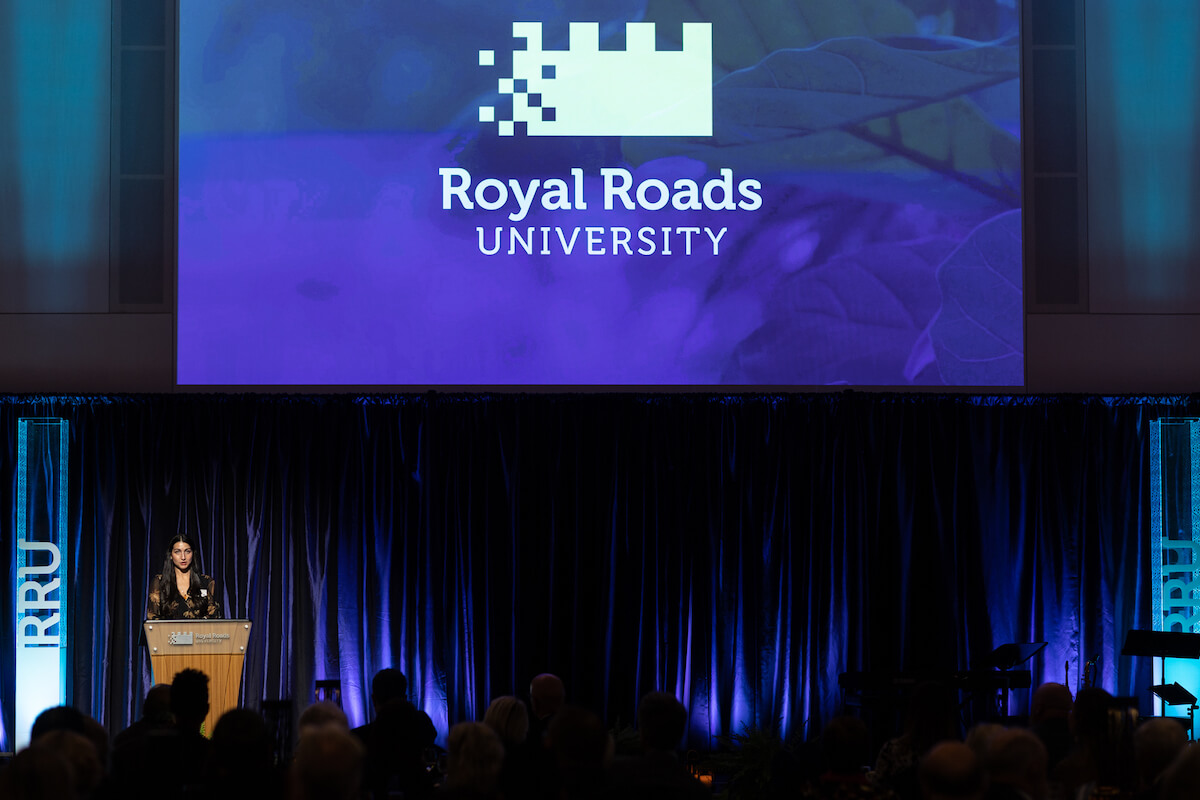
While healing physically and mentally, Emily found her true calling with the Royal Roads University (RRU) Bachelor of Business Administration (BBA) in Innovation and Sustainability – a program she began in September, 2020.
“I instantly knew it was perfect for me, I applied as soon as I could, and got in,” she recalls. “[It] was the perfect marriage of business with ethics and is exactly what I wanted to do.”
She took out a student loan to be able to pursue a career where she could give back to her community. She says it was worth the risk, and the debt.
Acknowledged through scholarship funding
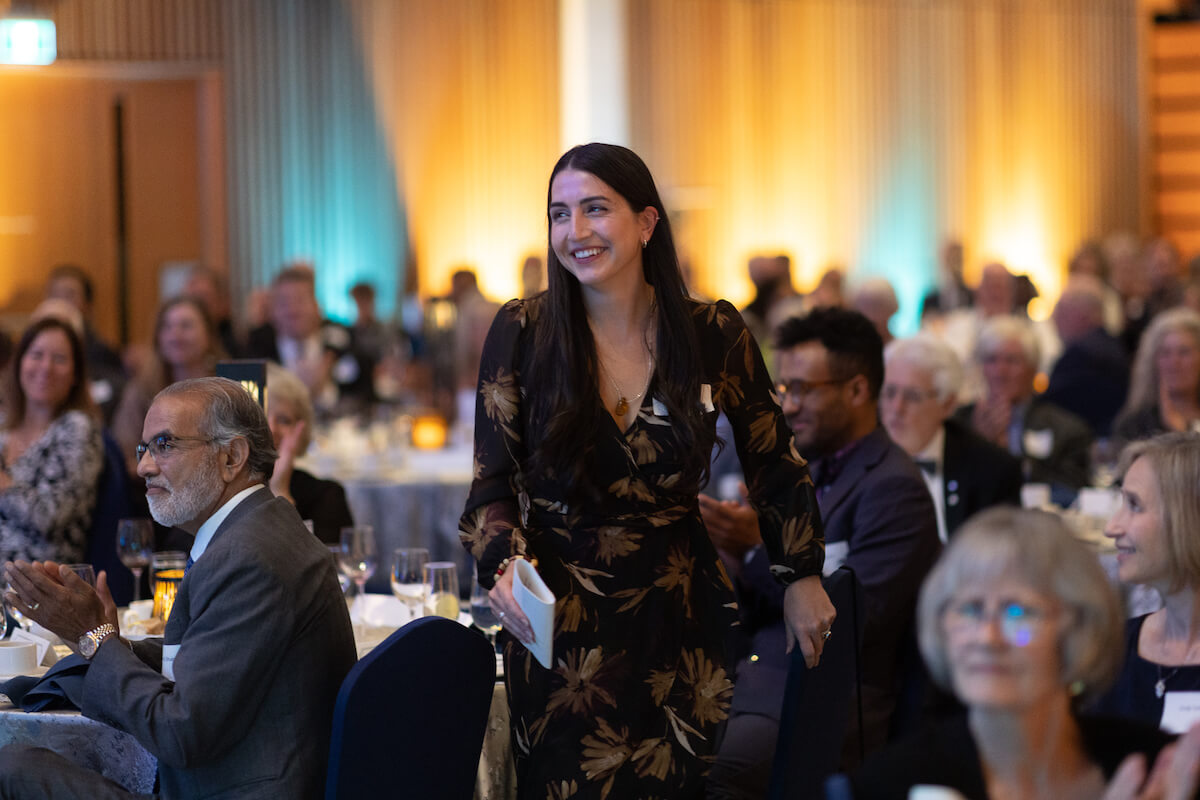
Great relief came when Emily learned she was selected for a scholarship she applied for: the Budh Singh and Kashmir Kaur Dhahan Scholarship. It was designed for someone who “demonstrates leadership in the community or efforts to overcome personal challenges.”
The scholarship was launched in partnership with Barj Dhahan, a B.C. social entrepreneur and founder of Canada India Education Society (CIES).
“I wanted this scholarship to honour my mother and father, who gave their lives to serve others less fortunate than they were, even though they did not have a lot,” explains Barj, for the reason he named it after his parents.
“This scholarship has allowed me to focus on my studies, contribute in the classroom, and pour my whole self into my education. It has been deeply fulfilling to focus on my studies as so many of our projects are collaborative efforts with changemakers in our community,” says Emily. “I have worked my butt off to get top marks, so that I further open up my options.”
Emily also received a scholarship of lesser, but significant value, thanks to her leadership involvement at the Royal Roads University Student Association (RRUSA).
Looking forward to a bright career in sustainable, ethical business management
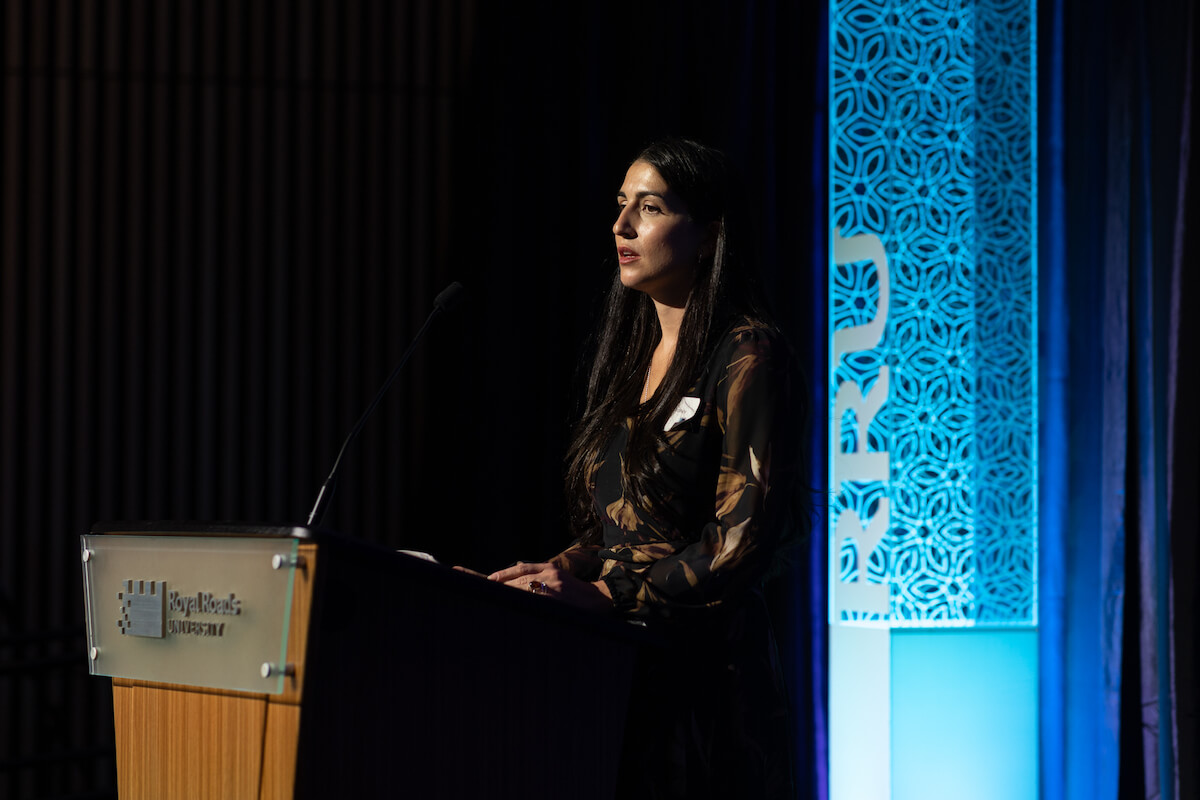
As of September, 2022, Emily became the part-time Research Assistant for RRU Assistant Professor Heather Hachigian. Her duties are to explore case studies and policies that facilitate or hinder community wealth building.
“I hope to follow this through to see real policy changes and witness the essential structure of businesses to evolve to support humanistic principles, ensuring that more people have access to living wages, benefits, and building equity,” she says.
Emily is scheduled to complete her studies in June, 2023. She hopes to find herself working as an advisor to businesses so they can take steps to become environmentally and socially beneficial.
Enjoying life as the best it can be
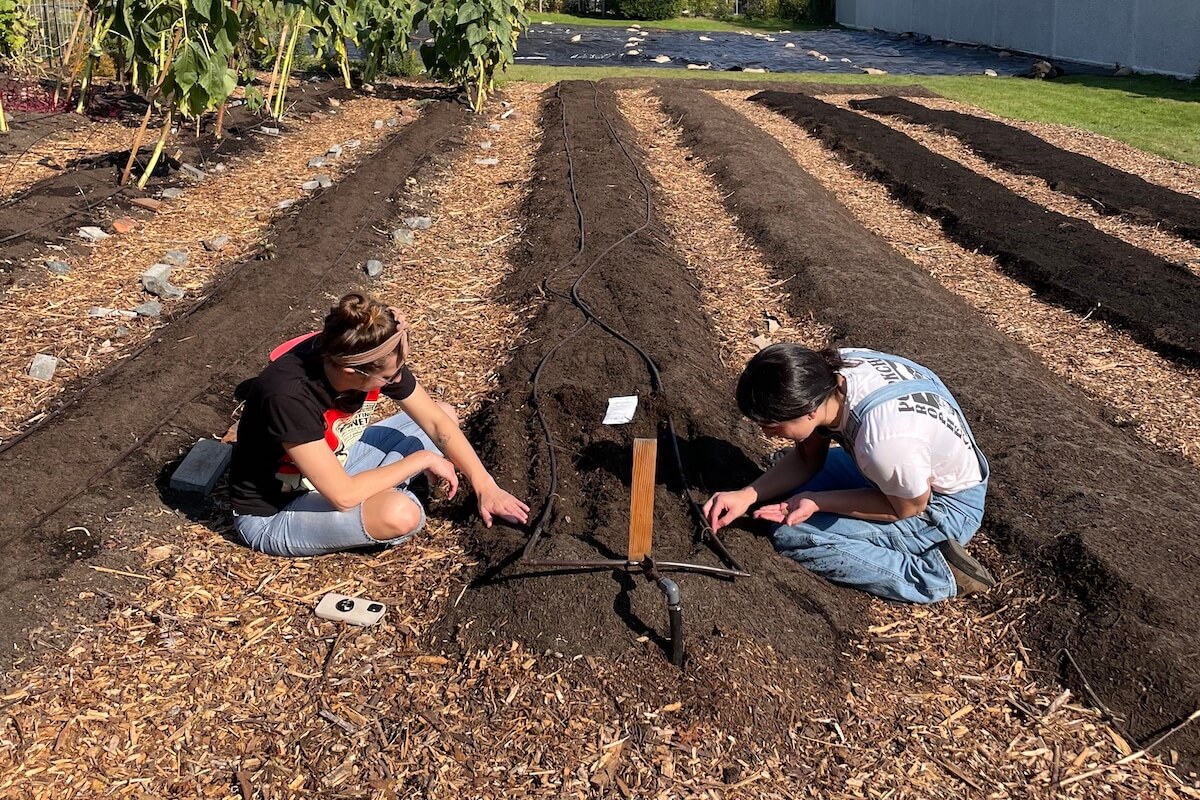
Outside of school and work, Emily finds great joy working on the Royal Roads Giving Garden two days a week. During her studies, she also spent time on a venture she started with classmates as a school project, the Victoria Brain Injury Society (VBIS), by selling items through its online store.
When she can, Emily loves free-diving and catching crabs, camping, spending time outdoors, cooking, baking, practicing yoga, meditating and being among family.
“One of my greatest lessons through my illness was that determination and passion could get me through anything. . .This program and this scholarship has been a perfect example of just that,” says Emily.
Emily still lives with chronic Lyme disease, specifically, post-treatment Lyme disease syndrome (PTLDS).